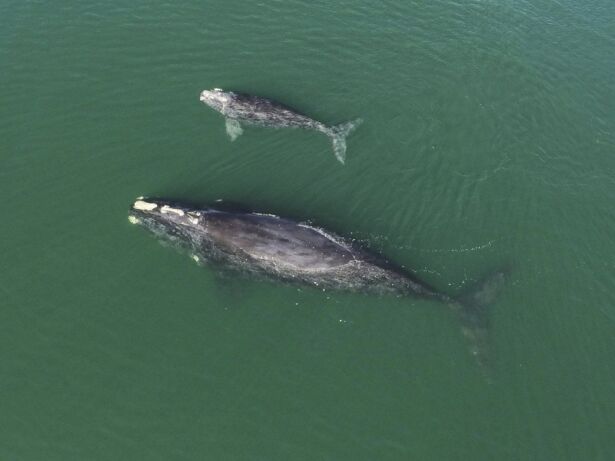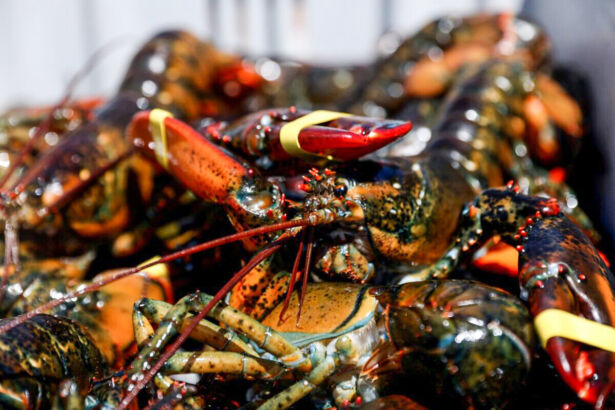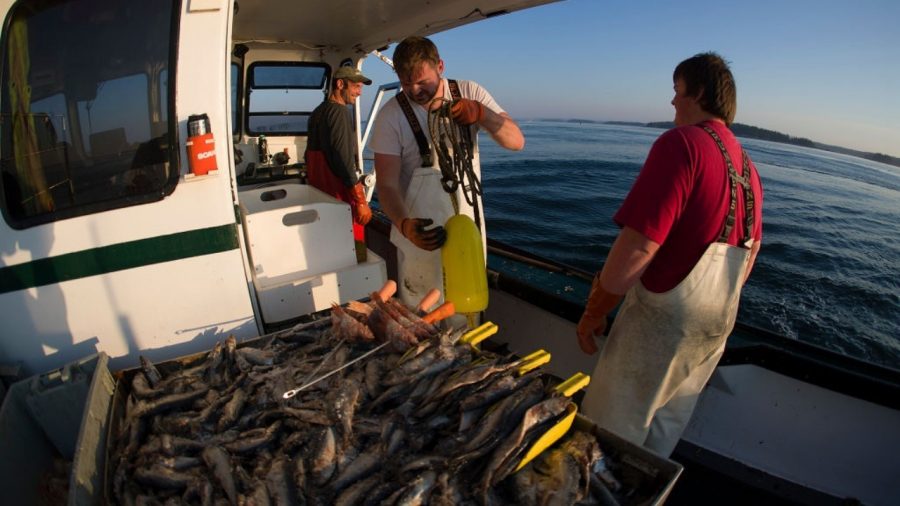The U.S. Court of Appeals for the District of Columbia Circuit ruled that the National Marine Fisheries Service (NMFS) overstepped its authority with a plan for lobstermen to reduce the lines they place in the water by 98 percent within ten years.
“It’s a huge win,” eighth-generation lobsterman Jason Joyce of Swans Island, Maine, told The Epoch Times.
The lobstermen said the policy plan set an unrealistic standard. In addition, they say there is no reliable data that Maine lobstermen are hurting whales.
Maine Lobstermen’s Association (MLA) policy director Patrice McCarron echoed Joyce’s sentiments in a June 16 press release, the day the decision was issued.
“MLA is grateful for the panel’s thorough and unanimous opinion that exposes the flaws in the biological opinion that lobstermen have been emphasizing from the beginning,” the statement reads.

Appeals Court Judge Douglas Ginsburg, writing for the three-judge panel, said the NMFS’S “legal reasoning was not just wrong; it was egregiously wrong.”
According to the decision, the NMFS used “legislative history” to determine Congress’ intent when it applied the Endangered Species Act. Ginsburg wrote that the NMFS must use the existing law to determine Congress’ intent.
“We cannot approve such a casual disregard of the rules of statutory interpretation. The reason is obvious; as any high school Civics student should know, legislators vote on, and the president signs bills, not their legislative history,” Ginsburg wrote.
McCarron wrote that the MLA would not rest.
“Whiles today’s decision is great news, our work will continue.”
In September 2021, the MLA, the Maine Department of Marine Resources, and others sued the NMFS over rules designed to protect the North Atlantic right whale. MLA claimed that NMFS extrapolated data from 2017, when 17 North Atlantic right whales died. The NMFS reportedly estimated the whale population and other data based on “worst-case scenarios.” The lobstermen said the data were skewed against them.
NMFS claimed it was required to work that way and to set policies to favor the animals it is tasked to protect. In September 2022, a federal judge agreed, and the NMFS began to fast-track the implementation of its plan as the MLA appealed.
Joyce said this decision should mark the time to start over. He said NMFS should join with state and local entities in a scientific study of the North Atlantic right whales to determine the best way to preserve them alongside lobster fishermen.

“We should be pushing all this back and starting anew,” Joyce said.
McCarron agrees.
“MLA is hopeful that this decision will force the National Marine Fisheries Service to go back to the drawing board to develop a plan that uses the best available science and accurate data and, importantly, that will protect whales without eliminating the lobster fishery,” McCarron wrote in the MLA press release.
Lobstermen must use non-floating lines on their traps to reduce the chance of entanglement. Non-floating lines minimize the chance of entanglement because they hang directly down from a buoy rather than gathering near the surface. If a buoy becomes separated from a line, the line will sink to the bottom, reducing the possibility that a whale or some other animal will become entangled.
Lobstermen also use “weak links” in their lines designed to part if too much pressure is placed on them. The idea is for a whale to be able to pull itself free if it becomes entangled.
Joyce said lobstermen have voluntarily complied with these and other regulations for over 20 years. He and other lobstermen said they have no interest in harming whales and are glad to reduce harm as much as they can. They point to NMFS data that says no whale deaths have been traced back to any Maine lobstermen.
According to Joyce, that fact should have made it clear that there is no need for stricter rules for the Maine lobster fishery.

“Those (NMFS) rules were based on faulty science,” Joyce said.
After the MLA lost its lawsuit, NMFS said it would accelerate the implementation of its 10-year plan. Maine’s Congressional delegation got a provision inserted into the FY 2023 Omnibus Appropriations bill that delayed the rule until December 2028.
Joyce said NMFS’s goal is to require so-called “ropeless” gear. “Ropeless” traps have the line and buoy attached to the trap as a coil, sinking to the bottom when the trap is set. When it is time to retrieve the trap, the lobstermen would use an electronic device to signal the trap, and a mechanism would release the buoy, which would rise to the surface with the line attached.
The lobster traps that have been in use for generations can be purchased for prices ranging from $80 to $300 depending on the materials it is made from, their size, and other factors. Meanwhile, the ropeless gear would cost $5,000 per trap, Joyce said, with the price alone being enough to shut down many lobster boats.
Some on Congress are pushing for federal funding to help the lobstermen transition to the ropeless gear. Joyce said those resources would be better spent on more research.
“Money should not be wasted on that ropeless equipment,” Joyce said. “(The current gear) is simple, it works, and it’s not a risk to right whales.”
From The Epoch Times


